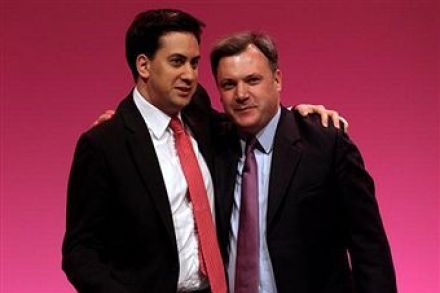Miliband’s two big risks
Who would have thought it? Miliband’s short speech in Nottingham today went largely unheralded, and doesn’t seem to be getting a whole lot of attention now — and yet it tells us more about his approach to Opposition than almost anything he has said previously. Fact is, the Labour leader is taking two risks that may be either bold or foolhardy, depending on your point of view. These risks could come to define his Labour party. The first is splashed right across the entire speech. Miliband dwells on three “challenges” that the country will face over the coming decade: the “cost of living crisis”; declining prospects for the next generation;
















